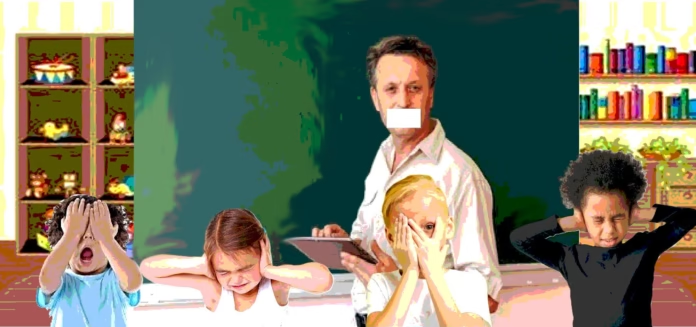Maya Suzuki Daniels is a San Pedro teacher, parent, and proud UTLA member.
A student calls another student a slur on the playground. They don’t know what it means — they’re just trying to hurt their classmate after a disagreement over a game. A teacher steps in and tells the student not to use that word. But they don’t explain why it’s harmful. They’re afraid to talk about race or religion with students.
The targeted student’s parents file a complaint with the district. The teacher is removed from the classroom, pending investigation. The parent shares the teacher’s name and contact information on social media. The school is flooded with angry emails and phone calls — some of them threatening. Law enforcement is called. A credible threat is identified. The school goes into lockdown. Students and parents are terrified.
This may sound hypothetical. It’s not. It’s based on real experiences from California school communities. Schools have long failed to adequately address identity-based discrimination — a gap that Ethnic Studies emerged to confront head-on. But under AB 715, educators will be even less likely to engage students in conversations about race, religion, culture, or identity.
Already, educators and students have been targeted for Black history, queer representation, Middle East politics, and student speeches. The rise in cyberbullying and digital harassment connected to these topics is real. Educators have been doxxed, harassed, and even sued—for doing their jobs. The chilling effect of AB 715 is clear: don’t touch controversial topics. Don’t take risks. Stay silent.
But when we rob students of a safe space to learn and talk about the world they live in, we don’t protect them — we isolate them. Representation disappears. Teachers quietly pull books from shelves. They take down classroom decorations. They cancel lessons. Why? Because what if a story about Black history offends a white parent? What if a lesson about queer identity offends straight students? What if a feminist author offends a boy in the room? What if talking about Japanese internment offends the descendants of government officials? What if discussing colonialism offends descendants of settlers?
When fear of offense dictates our classrooms, we erase the truth. We erase history. We erase identity. We teach students that only one kind of narrative — cis, straight, white — is safe. Everything else is a risk.
That’s not what California parents want. At the Education Committee hearing on May 14th, parents spoke out — loudly — about the kind of world they want their children to grow up in. The majority were Jewish parents, urging lawmakers not to shy away from difficult conversations. They want their kids to understand the complexity and pain of Israel and Palestine’s histories — and why those issues matter here, in California classrooms.
Silence is not education. Ignoring hard topics won’t help us heal. Education is how we bridge divides. On behalf of educators, students, and families across the state, we urge you: Oppose AB 715.
Details: You can find contact information for your legislator here:



